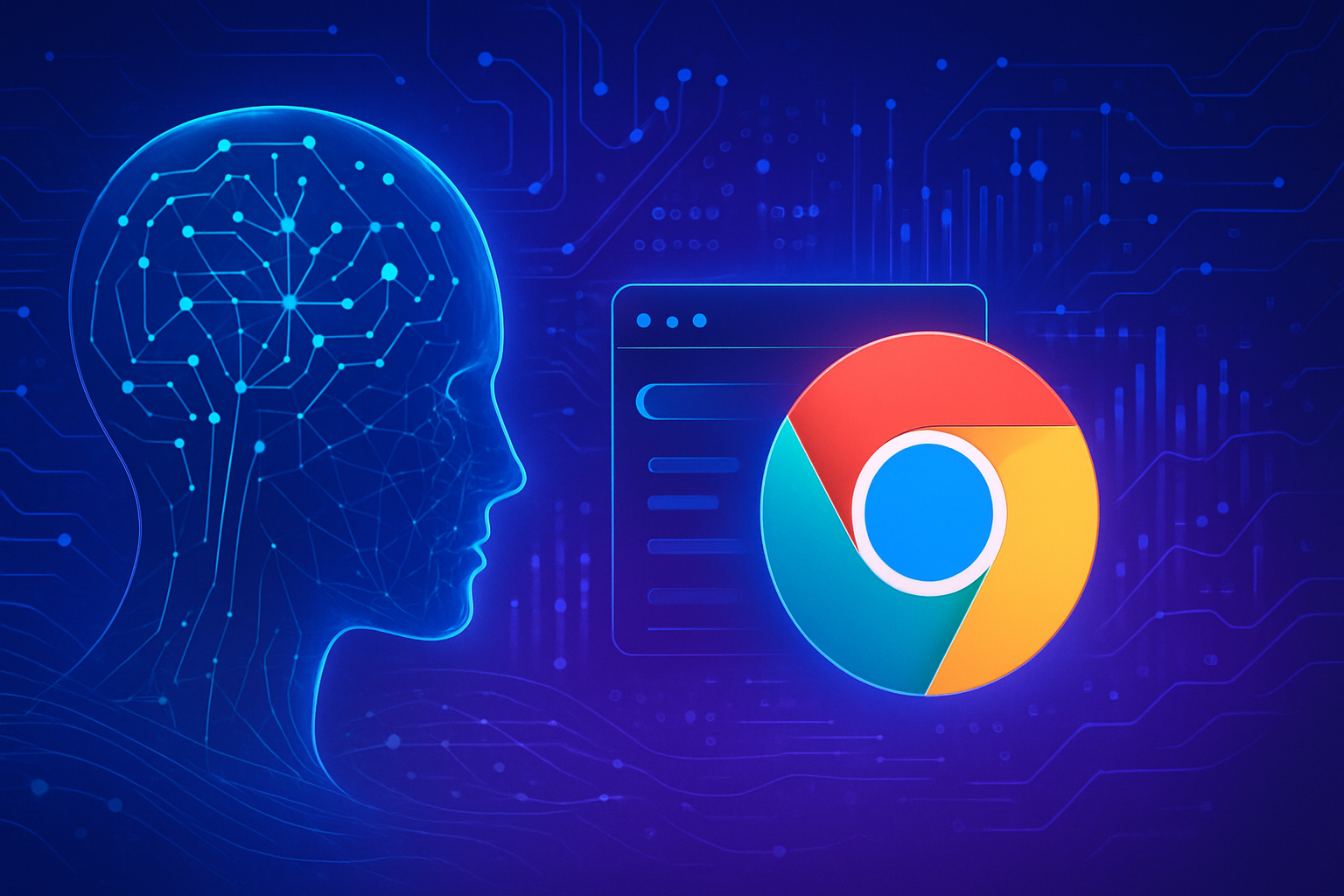AI is shaping the future of browsing. Gemini, Google’s latest innovation, embodies this bold transformation through Chrome. Unprecedented features are emerging, redefining user interactions with the web. A proactive and contextual assistance is emerging, ensuring intuitive and personalized browsing. The combination of these advancements raises security and privacy issues. The AI era promises an unprecedented metamorphosis of digital daily life.
The Integration of Gemini in Chrome
Google is implementing its Gemini technology in its flagship browser, Chrome, thus transforming the browsing experience. This advancement follows various innovations and reflects Google’s commitment to integrating artificial intelligence into its products. Currently, these new features are only available to users in the United States and focus on the Mac and Windows versions.
A Proactive Browser
Chrome aspires to be much more than just a web display tool. The integration of AI allows the browser to provide valuable assistance to the user. The ability to synthesize and explain online content proves particularly relevant, especially for technical articles or scientific publications. Users thus have the option to request a simplified version of a text, facilitating their understanding.
Multitasking Optimization
The Gemini feature is not limited to a single page. The browser has the capability to compare different tabs that are open simultaneously. For example, when a user is looking at multiple travel destinations, Gemini extracts the key points, making the comparison smoother and more productive.
Agentic Features
Google is introducing so-called “agentic” features in Chrome. This artificial intelligence can manage complex tasks and break them into steps, such as organizing a trip. The browser conducts flight searches, compares accommodation options, and suggests restaurants, all without requiring repeated instructions from the user.
Daily tasks such as recurring purchases and reminder management can also be automated. Google’s ambition is for Chrome to become a proactive assistant, capable of intervening at the right moment while maintaining user control.
Evolution of the Omnibox
Chrome’s address bar, known as the omnibox, is benefiting from a redesign thanks to AI. The new AI Mode transforms the omnibox into an interactive dialogue space. Users will be able to ask complex questions and receive concise answers, thus providing an enriched search experience.
This new feature adapts to the context of the visited page. For example, while reading an article, it is possible to request summaries or analyses, while an e-commerce site can provide feature summaries of products, further enhancing the browsing experience.
Enhanced Security
The security aspect of Chrome has also been strengthened thanks to Gemini. The browser will now need to detect phishing attempts and fraudulent sites more effectively. AI will analyze the content of pages to ensure better protection for users.
Another notable feature concerns the management of compromised passwords. Chrome will suggest reporting issues and automatically generate a new password when breaches occur in data leaks, making this process much more convenient.
A Consistent Experience Across All Platforms
Google envisions an integration of Gemini that does not limit itself to computers. An extension for Android and iOS is expected to offer a consistent experience across all platforms. The assistant will be able to connect to other Google services, such as Maps and YouTube, providing contextualized answers.
Despite the scope of these innovations, their availability remains confined. The new features are only accessible in the United States and exclusively in English, raising expectations in Europe regarding their rollout. Privacy and personal data protection are increasingly scrutinized by regulators, given the stakes related to AI.
To deepen your understanding of the impact of artificial intelligence, check out the following articles: LLM and human brain, Siri redesign, Siri and OpenAI, Best AI solutions, AI and robot performances.
Frequently Asked Questions About The AI Era: Gemini, Google’s New Revolution in Chrome
What are the main new features of the integration of Gemini into Chrome?
Gemini in Chrome allows assistance with understanding, synthesizing content from multiple tabs, and complex tasks via agentic functionalities, such as organizing trips.
When will Gemini be available outside of the United States?
Currently, the new features of Gemini are only available in the United States, in English, with no specific timeline for deployment in Europe or France.
How does Gemini’s AI help better understand online content?
Gemini can explain and summarize dense or complex articles, allowing each user to obtain a simplified version tailored to their level of understanding.
What is the AI Mode in Chrome’s omnibox?
The AI Mode transforms the address bar into a conversational space, where users can ask questions, request clarifications, and receive contextualized answers in real-time.
How does Chrome ensure user security with the integration of AI?
Chrome uses AI to detect phishing attempts, block abusive notifications, and manage compromised passwords, thus protecting users’ personal data.
What complex tasks can Gemini handle for users?
Gemini can organize trips by searching for flights, comparing hotels, suggesting restaurants, and creating an itinerary without the user having to repeat their instructions.
How does Gemini improve multitasking while browsing?
It synthesizes information from multiple open tabs, facilitating the comparison of different options such as travel destinations or insurance offers.
What are the implications of the integration of Gemini for content publishers?
With the increase in answers provided by Gemini, there may potentially be a significant decrease in traffic to publisher sites, as searching and browsing will be more integrated.
Will Google services also be connected to Gemini in Chrome?
Yes, the integration of Gemini envisions a connection with other Google services, such as Maps, YouTube, or Calendar, for a smoother and more consistent user experience.
How can users express concerns regarding privacy with this new AI?
Users should follow Google’s updates on data protection and express their concerns directly to regulators, who can influence regulations regarding data sharing.






